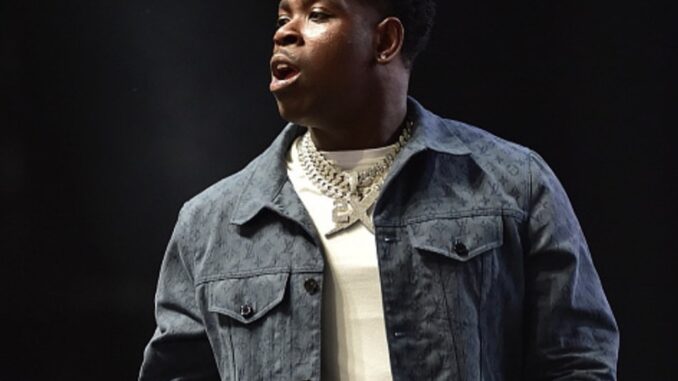
In a shocking turn of events, prominent rapper Casanova finds himself on the wrong side of the law, receiving a nearly 16-year prison sentence for his involvement in racketeering and drug-related crimes. This unfortunate outcome serves as a reminder that success does not exempt one from the consequences of illegal activities. Let us delve deeper into the details surrounding this case and reflect on the ramifications it has for the music industry and society as a whole.
Casanova, born Caswell Senior, rose to fame in the late 2010s with his unique style and powerful lyrical abilities. Initially hailing from Brooklyn, New York, he quickly gained popularity through his musical versatility and engaging stage presence. Collaborating with esteemed artists such as Fabolous, Chris Brown, and Tory Lanez, Casanova was poised for a prosperous career in the music industry.
Unfortunately, Casanova’s success took an ominous turn when he found himself entangled in a web of criminal activities. Charged with racketeering conspiracy, possession of firearms, and distributing controlled substances, the rapper’s glamorous lifestyle came crashing down. After a thorough investigation by law enforcement, the evidence amassed proved sufficient to convict Casanova of these grave offenses.
On Wednesday, March 10th, 2023, Casanova was sentenced to a substantial prison term of almost 16 years. The judge emphasized the need to hold individuals accountable for their actions, irrespective of their social standing. This ruling serves as a reminder that fame and success carry no immunity from judgement and serve as a deterrent against similar criminal behavior.
Casanova’s conviction places the music industry under a microscope, spotlighting the balance between artistic expression and criminality. With fame often comes notoriety and temptations that can lead individuals astray. This case serves as a stern warning to artists and aspiring musicians alike, urging them to use their platform for positive change rather than succumbing to criminal ventures. Furthermore, the conviction highlights the importance of ethical behavior within the industry as a whole, from artists to executives, ensuring that it remains a vessel for inspiration rather than illegal conduct.
Public opinion concerning Casanova’s conviction is diverse, reflecting a range of emotions from disappointment to relief. Some admirers mourn the loss of a talented artist, seeing his conviction as a missed opportunity for potential social impact. Others view his imprisonment as a victory for justice and a reminder that no one is above the law. Ultimately, society must grapple with the complexities of separating the art from the artist and decide where personal responsibility lies within their fan base.
The sentencing of rapper Casanova to nearly 16 years in prison on racketeering and drug charges serves as a stark reminder that talent and success cannot shield individuals from the repercussions of illicit activities. This high-profile case prompts introspection within the music industry and society at large about the ethical responsibilities of artists and the importance of distinguishing between a captivating persona and criminal behavior. As this chapter concludes, we hope that it serves as a cautionary tale and inspires future artists to utilize their platforms for positive change rather than self-destruction.